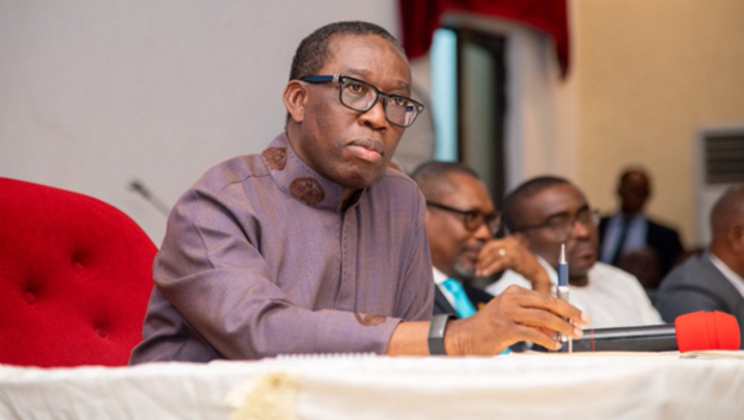The former governor of Delta State, Ifeanyi Okowa, has categorically denied allegations of returning N500 billion to the state government amidst an ongoing investigation by the Economic and Financial Crimes Commission (EFCC). Rumors had circulated suggesting that Okowa had discreetly refunded the substantial sum as part of a strategic maneuver to mitigate potential prosecution and maintain his political standing. These rumors painted a picture of a clandestine agreement designed to preempt legal repercussions and potentially negotiate a lenient outcome with anti-corruption authorities. However, Okowa, speaking through his Chief Press Secretary, Olise Ifeajirika, refuted these claims, asserting that no such refund had taken place.
Okowa’s spokesperson emphasized the EFCC’s prerogative to conduct its investigation unimpeded. He confirmed that the former governor had been invited by the commission, presented with documents, and subsequently provided responses. The spokesperson highlighted the ongoing nature of the EFCC’s investigation, noting that the commission has been actively operating within Delta State, summoning individuals for questioning. He underscored that the investigative process is still underway and that any determination regarding refunds or legal action would be premature until the investigation concludes. Ifeajirika reiterated that the narrative of Okowa returning funds to either the Delta State Government or the EFCC is entirely unfounded.
The denial of the alleged N500 billion refund comes against the backdrop of increased scrutiny on public officials and their financial dealings. The EFCC’s investigation into Okowa’s tenure as governor has generated significant public interest, fueling speculation about potential financial improprieties. The substantial sum mentioned in the rumors further amplified the controversy, raising questions about the scale of alleged mismanagement of public funds. Okowa’s denial serves as a direct response to these allegations, aiming to counter the narrative of financial wrongdoing that has gained traction in public discourse.
The unfolding situation underscores the importance of due process and the presumption of innocence until proven guilty. While the EFCC’s investigation proceeds, it remains crucial to refrain from drawing premature conclusions based on unsubstantiated rumors. The ongoing investigation will ultimately determine whether any financial irregularities occurred during Okowa’s governorship and whether any legal action is warranted. Until the investigation reaches its conclusion, it is essential to allow the legal process to unfold without prejudice.
The controversy surrounding the alleged refund also highlights the significance of transparency and accountability in public governance. The public has a right to know how public funds are managed and whether those entrusted with public office have acted responsibly and ethically. The EFCC’s investigation plays a crucial role in ensuring accountability and upholding the rule of law. The outcome of the investigation will undoubtedly have significant implications for Delta State and will send a message about the consequences of financial misconduct in public office.
In the meantime, the conflicting narratives surrounding the alleged refund highlight the complex and often opaque nature of financial investigations. The public is left to grapple with competing claims and interpretations of events, underscoring the need for clear and accurate information from official sources. As the investigation progresses, it is hoped that further details will emerge, shedding light on the truth of the matter and ultimately ensuring accountability and justice.














